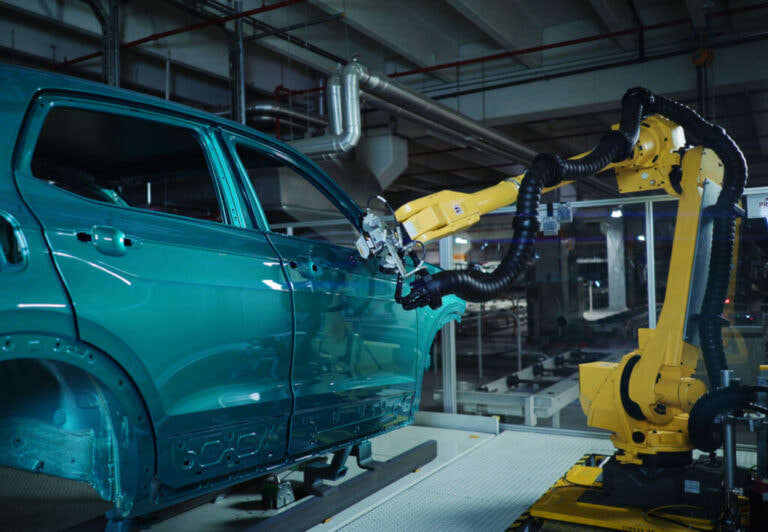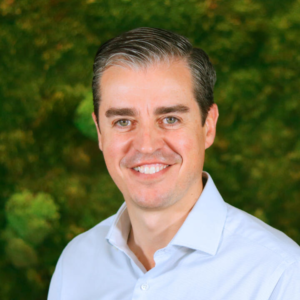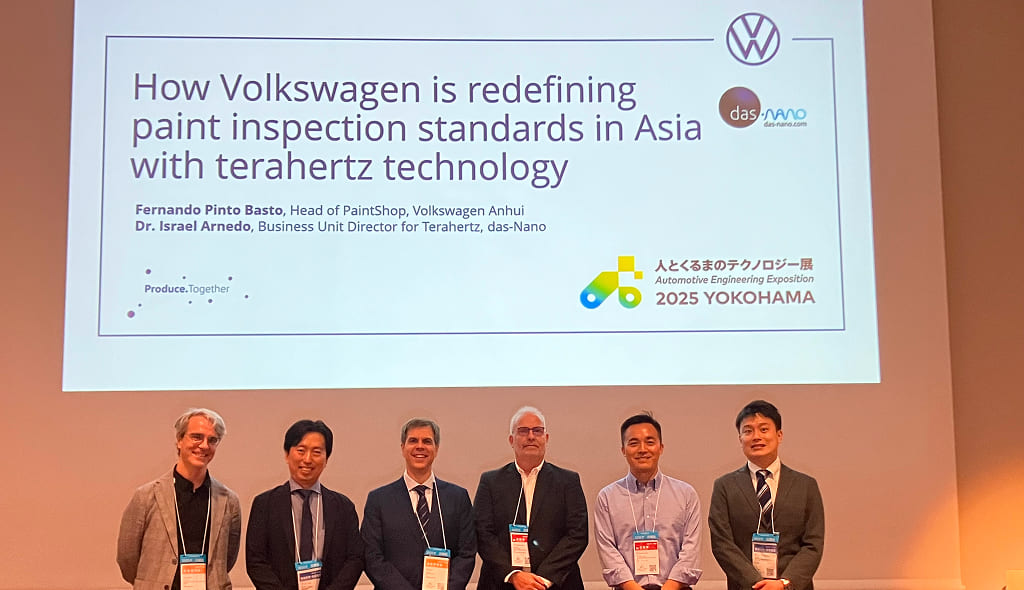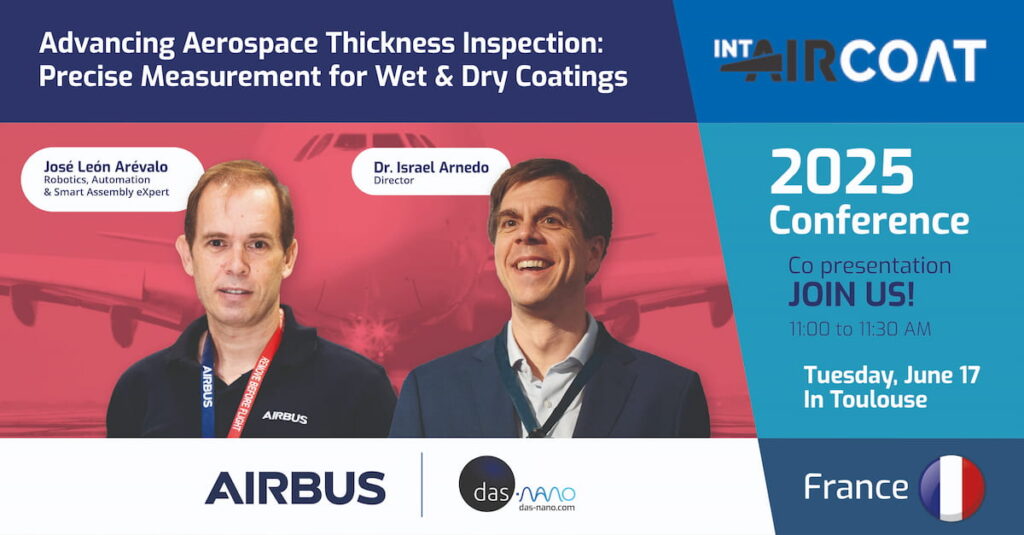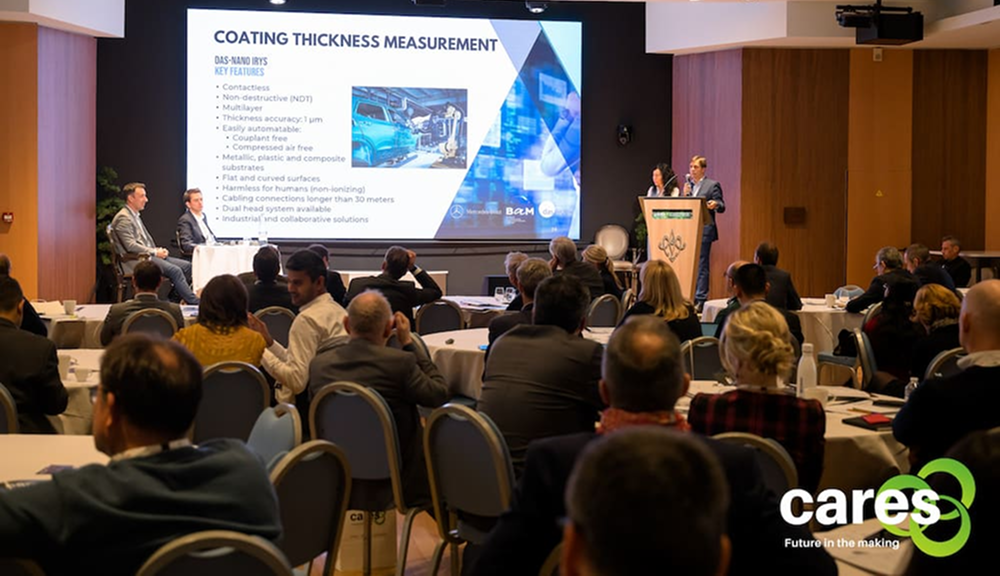Volkswagen confirms to The Besser Lackieren significant cost savings with das-Nano’s pioneering solution
Volkswagen, one of the world’s largest automobile manufacturers, has confirmed to The Besser Lackieren the achievement of significant cost savings in their paint measurement processes thanks to the implementation of das-Nano Irys, a pioneering solution for contactless measurement powered by terahertz technology.
“With previous methods, it was still necessary to make scratch bodies, mask them off and manually measure the layer thickness. So now we have significant time and material savings with this novel system. You get much more information compared to previous systems.”
The implementation of Irys is “an important step towards painting 4.0 and more sustainability”, as The Besser Lackieren related in their November issue. das-Nano calculates that the solution, implemented in 2020, helps achieving 15% savings in painting processes, reducing the expenditure on materials, energy, and defective pieces, with the corresponding environmental impact reduction.
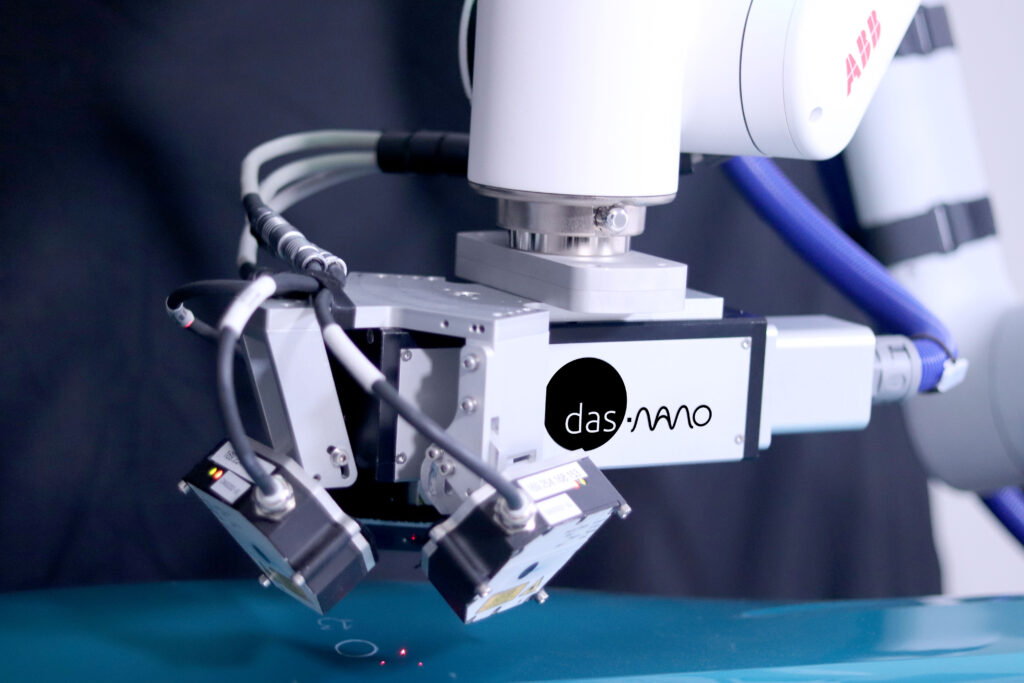
Founded in 2000, The Besser Lackieren is considered one of the world’s most prestigious mediums for paint-related topics in industrial use. So much so that most companies read its pages assiduously (the magazine has more than 560 subscribers) to learn about the latest trends in the sector and even make the best purchasing decision.
Volkswagen and das-Nano, an undeniable success
Back in 2020, the Volkswagen group called for an international tender process for the world’s first installation of a paint thickness inspection system at Volkswagen Navarra’s facilities. After several years of very demanding discussions, Volkswagen selected das-Nano to deploy his unique system, which has been in operation since July 2020, 24/7.
Before the implementation of this technology, car manufacturers faced several problems regarding measuring the car body coating thickness. To begin with, previous systems required contact and could damage the vehicle inspected. They also measured the thickness of the entire coating rather than the individual layers that make up a car’s paintwork, making it impossible to detect the source of many of the problems.
Considering the automotive industry’s competitiveness and the paramount importance of good quality controls, the Volkswagen Group found in das-Nano Irys the best solution to this problem. With Irys, real-time thickness measurements of each applied e-coat, paint and clear coat layer (wet, dry, and cured) are obtained, providing a more reliable painting process with an early detection of defective pieces.
https://www.youtube.com/watch?v=3nkWitVKAZc&t=94s
Volkswagen success story
“The measuring cell with the terahertz sensor is located directly behind the top coat dryer and measures 50 measuring points over the entire body.” The solution works for both flat and curved surfaces, with an excellent accuracy of 1 micron
Thanks to one single Irys system, 50 kWh/car can be reduced in the painting process, which implies more than 16 GWh/year in a main car manufacturing plant such as VW Navarra: a reduction in CO2 emissions higher than 7,000 CO2 ton/year.
das-Nano group, more than 10 years pioneering the use of terahertz technology
Terahertz technology has been known since the beginning of the 20th century. Still, its application was not possible until three decades ago due to the lack of material means for correctly generating and detecting these waves.
At present, there are only a few companies in the world dedicated to the manufacture of terahertz spectrometers, designed primarily for scientific research. das-Nano goes beyond and comes up with solutions to industrial problems by applying terahertz technology.
Terahertz waves have a high potential to transform the state of the art of today’s technology, just as X-rays, infrared waves or microwaves have had in the past. Their distinctive feature is their ability to penetrate through most dielectric materials (such as plastics, ceramics, pharmaceuticals, insulation, textiles, or wood), which opens up a world of possibilities for nondestructive testing (NDT).
So far, no industrial deployment of this technology has been carried out, except at the Volkswagen Navarra plant, where das-Nano installed its Irys system in July 2020 and has been working non-stop, 24 hours a day, every day of the week, ever since.
